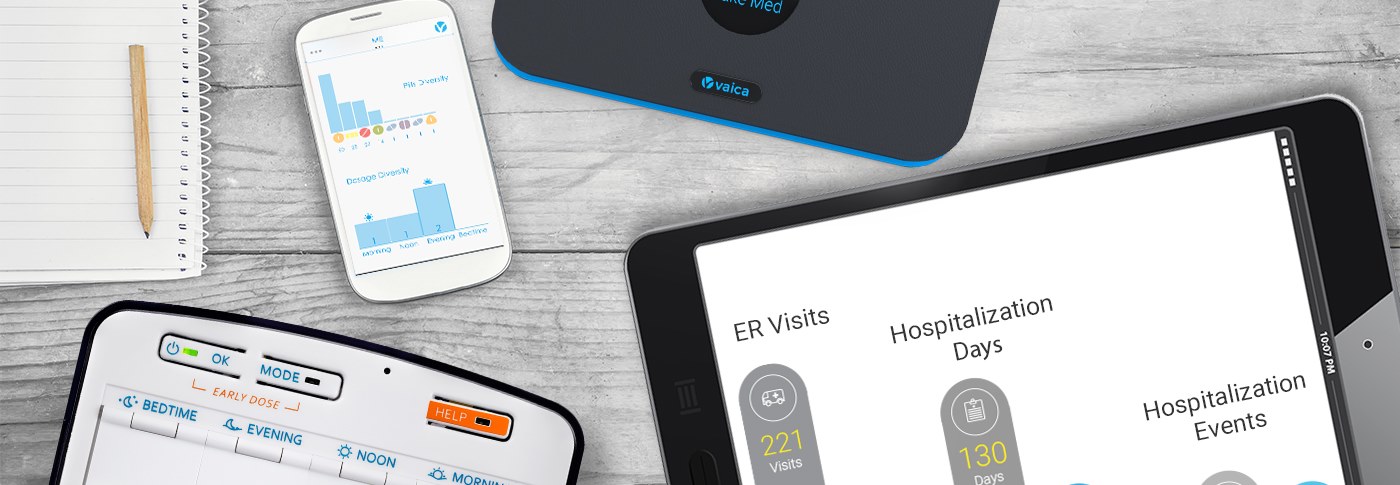Knowledge Base
Medication Adherence Support Programs- Is there a version that actually works?
During the last few years, medication non-adherence and its devastating impact has become a common discussion topic. These discussions triggered various studies, technology developments and speculations in regards to the efficiency of current existing solutions in the market (apps, devices, call centers). A short while ago, a study with disappointing results in regards to the influence of a support system / technology developments on adherence levels was published. These results were a blow to different adherence technology developers as well as to believers in the impact that supporting program disciplinary has on medication adherence. Its results have shown that an intervention that combines smart reminding pill bottles, lottery based gamification and social support do not improve medication adherence outcomes, nor do they lower the rate of readmissions for heart attack surviving patients.
Medication Non-Adherence Challenges and the Doable Solution
Many patients frequently do not adhere to significantly essential medication. Poor medication adherence result in poor clinical outcomes and may lead to morbidity, mortality, increased health care costs and harmful consequences for workforce productivity and overall public health. Half of the 3.2 billion annual prescriptions dispensed in the United States are eventually not taken. Estimates are that approximately 125,000 deaths per year in the United States are due to medication non-adherence.
Vaica Medical and mServices Present Successful Medication Adherence Study Results at Santa Helena, Brazil
A study was conducted by St. Helena Health with chronic heart failure (CHF) patients, in which a group was monitored by Vaica’s SimpleMed+. The smart medication management dispenser monitors adherence by logging every dose taken by the patient and outputting reminders. These reminders are programmable and can escalate from visual and audible alerts to text messages and emails.
The results were very impressive. Adherence to medication was sustained at above 94.5%, 98% taken if including late doses as well.
Complete Support System – A proven medication adherence solution
In this article we will go over several main definitions regarding the non-adherence terminology and different coping techniques that can help deal with this wide spreading phenomenon.
The Risk and Cost of Medication Non Adherence In Hypertensive and Diabetic Patients
A leading study on the “Impact of Medication Adherence on Hospitalization Risk and Healthcare Cost” published peer-reviewed journal Refereed journal Academia A professional journal that only publishes articles subjected to a rigorous peer validity review process. Cf Throwaway journal. by the American Public Health Association was based on a sample of over 137,000 patients under the age of 65 with diabetes, high cholesterol, hypertension, or congestive heart failure congestive heart failure, inability of the heart to expel sufficient blood to keep pace with the metabolic demands of the body. In the healthy individual the heart can tolerate large increases of workload for a considerable length of time. . This study was one of the first to demonstrate the savings generated by medication adherence for these prevalent chronic medical conditions…
Medication Adherence ─ Critical in Breast Cancer Treatment
Non-adherence (also known as non-compliance) to medication regimen may affect the patient’s quality of life, cause poor health outcomes, further complications, health deterioration, untimely death, as well as financial cost. Non-adherence is said to be intentional when the patient decides not to take the prescribed medication, often due to adverse side effects or when the treatment outcomes are not clear, poor or take a long time. Non-intentional adherence may result from forgetting to take the medication, misunderstanding the instructions, e.g. of the drug schedule or the importance of taking medication on time and for the full duration.…
Multidisciplinary and Pharmacy-Based Strategies for Improving Medication Adherence
MEDICATION NONADHERENCE has been documented since ancient times, when Hippocrates wrote, “Keep watch also on the faults of the patients which often make them lie about the taking of things prescribed.” Unfortunately, nonadherence continues to this day. As the late great Surgeon General C. Everett Koop, MD, said, “Drugs don’t work in patients who don’t take them.” Today, with an estimated 50% to 66% of patients failing to take medication as prescribed, with 17% of the United States gross domestic product spent on health care, and with 75% of those costs related to chronic condition management medication, nonadherence is a larger problem than ever…
Patient Medication Adherence: Measures in Daily Practice
Adherence to therapies is a primary determinant of treatment success. Failure to adherence is a serious problem which not only affects the patient but also the health care system. Medication non adherence in patients leads to substantial worsening of disease, death and increased health care costs. A variety of factors are likely to affect adherence. Barriers to adherence could be addressed as patient, provider and health system factors, with interactions among them. Identifying specific barriers for each patient and adopting suitable techniques to overcome them will be necessary to improve medication adherence. Health care professionals such as physicians, pharmacists and nurses have significant role in their daily practice to improve patient medication adherence…
Medication non-adherence: an ancient problem in need of modern solutions
Poor compliance with prescription medications, identified over 2000 years ago by Hippocrates, is an ongoing public health crisis of enormous proportion. A 2009 report from the New England Healthcare Institute revealed that medication non-adherence is the source of an estimated $290 billion in “otherwise avoidable medical spending” in the US per year.” Interestingly, it represents a complex human phenomenon that defies simple rational explanation, and demands solutions above and beyond traditional rational fixes like reminders, education, and cost reductions…

